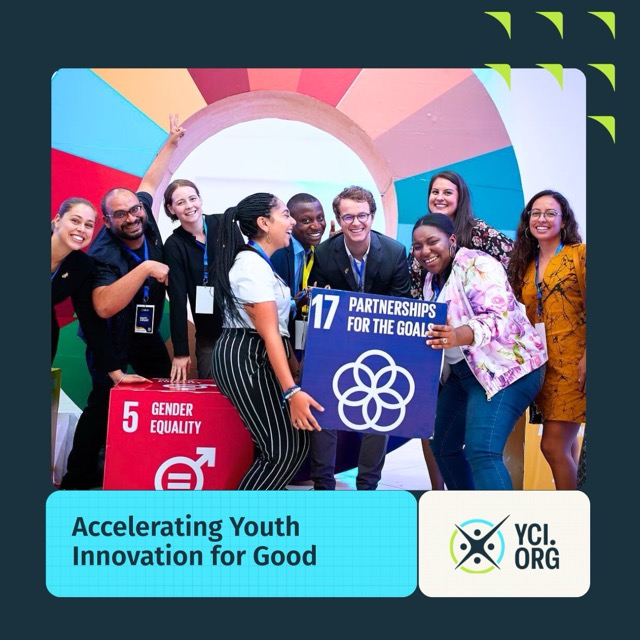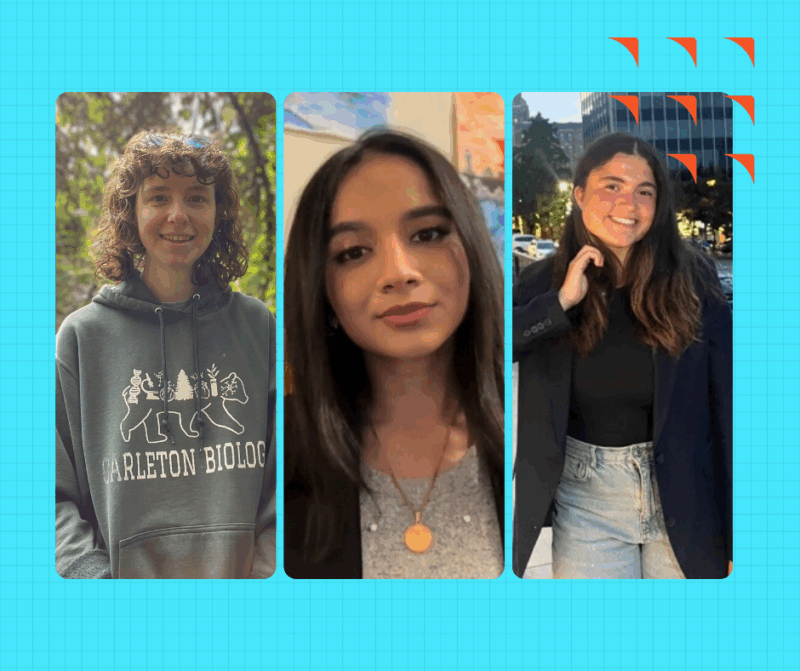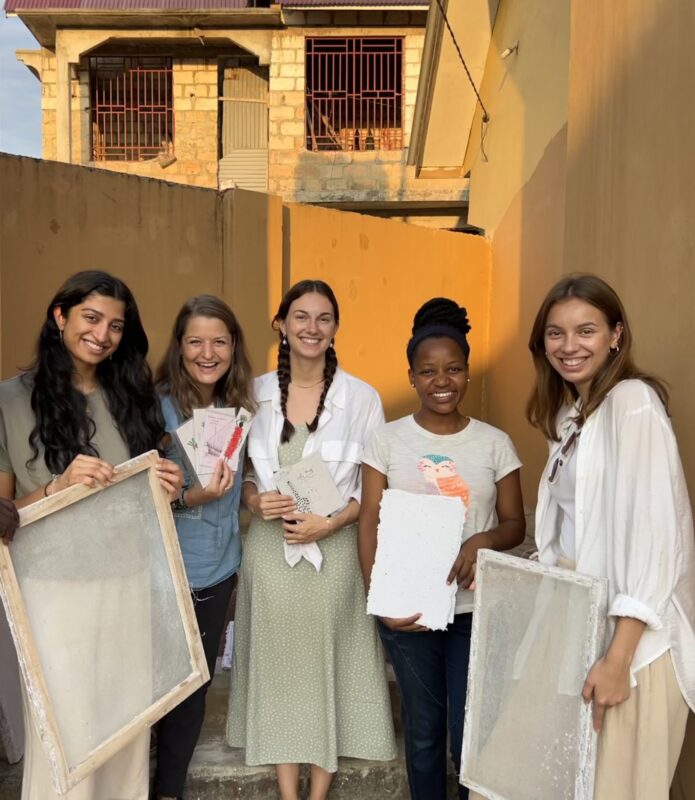
Impact Story
Conducting research as a HerStart Climate Action Fellow in Uganda
Written by Lucy Wolff, HerStart Climate Action Fellow in Uganda
As a Climate Action Fellow in YCI’s HerStart program in Uganda, I was interested to expand my own knowledge and resources for the HerStart team on green businesses in the region. As part of my research, I visited various enterprises that are transforming waste into valuable products. With this research, I would be able to better support and coach entrepreneurs within the HerStart program and create connections to successful enterprises and initiatives they can partner with for support. One informative visit during my placement was to the St. Kizito school.
Here we were shown how briquettes are produced – starting with organic waste from the community being carbonized in a large drum, followed by a trip through the intimidatingly named crusher and extruder machines, and finally left to dry for a few days in a steamy greenhouse area.
We met a group of schoolgirls who showed us how they used plastic water bottles to create art pieces that reflected light in the sun and saw the charcoal toothpaste that was being created with the chemistry teacher.
I also observed a plastic bottle house where mushroom beds from maize husks and cobs were hung. These beds produce 5-10 cycles of mushrooms before being tossed into the carbonization drum.
Next, we saw the new animal feed project. The plan was to dry student food waste (carbs) and mix it with dried maggots (protein) in a pellet-forming machine. The plan had yet to come to fruition since the maggots were still young, but soon the fish and chickens at the school would be feasting.
Our tour guide of St. Kizito then pointed down at the bricks we were standing on and explained that they came from the dirt that ends up in the drainage channels running through the school mixed with a bit of concrete. The school was almost a perfect circular economy.
They also pointed out the importance of running these sorts of activities at a school. The kids at St. Kizito learn in an environment that encourages creativity and entrepreneurship.
Finally, to top it all off, we received lunch. It tasted better knowing that it had been cooked using briquettes made from waste, fish from the pond, and vegetables from the garden that had been fertilized with student compost. Or maybe it just tasted better because it was my first time having properly steamed posho.
In any case, the visit to St. Kizito made me realize there is so much to gain by visiting sites and connecting with the entrepreneurs in Uganda, which set the tone for the rest of my fellowship.
Learn more about YCI’s HerStart Fellowships for Canadians of all ages to contribute their skills and gain international volunteer experience while collaborating with women and global partners to drive social entrepreneurship and gender equality.
More Like This

YCI’s Bold New Look and Strategy: Accelerating Youth Innovation for Good
2025-06-04

Meet 3 Inspiring Green Leaders from our Climate Action Network
2025-05-30

Fellowship Alumni Spotlight: Where Inaara Found Purpose & Impact
2025-05-06